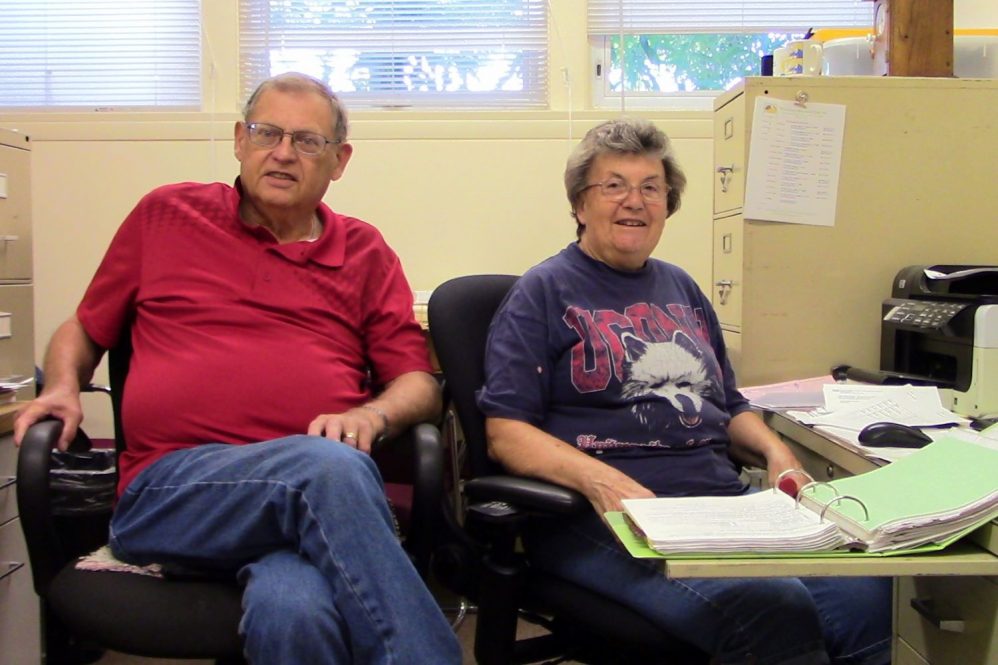A large swath of green space, with fields, barns, gardens, forest, and a nature trail are nestled on Route 30 in Vernon, a busy street just minutes off the interstate. A quiet amble through the property leads into the woods, with another garden in a clearing, and a bridge over a burbling brook. This oasis is the Tolland County Agricultural Center (TAC), a 501(c)3 non-profit. At 23-acres, it’s the largest parcel of non-habituated land in the entire town.
While the parcel is a decent distance from UConn’s main campus in Storrs, it plays a big role in several programs offered through the College of Agriculture, Health and Natural Resource’s Extension system. On any given day, UConn 4-H members are on the grounds learning about civic engagement, engineering and mechanics, animal science, or another topic. Extension’s Master Gardener volunteers are working in the gardens, while Extension educators and program staff are based in the office building.
This bustling hub of outdoor activity is thanks in large part to two volunteers. Ross and Becky (Niederwerfer) Person of East Windsor have been at the helm of managing and growing the Tolland Agricultural Center since it was founded in 1956. Both are from UConn 4-H families, and their initial involvement with 4-H led to academic pursuits at the University. Becky was also a member of the livestock judging team and president of the Block and Bridle Club while at UConn. Since then, the Persons have supported UConn Extension and its 4-H programs as the manager and assistant manager of the Tolland County Agricultural Center for the last 40 years.
Extension previously rented office space in downtown Rockville, but a 1955 fire in the building displaced the educators. Members of the Tolland County Farm Bureau sponsored Extension, and decided that a new, permanent location was needed. The town of Vernon offered to sell part of the Town Farm for this use. Ten farmers even offered their farms as collateral to make the $10,000 purchase, because the programs were so important to the community.
The Person and Niederwerfer families are a shining example what 4-H and Extension’s presence meant for Tolland. Four generations of their families have participated in and volunteered with 4-H and Extension programs. Ross and Becky joined UConn 4-H when they were both nine years old, in clubs led by their parents. Their respective siblings were also members, and later volunteers. Today their children and grandchildren are also active in UConn 4-H programs.
“Our involvement really started when the Tolland Agricultural Center property was purchased, and we started volunteering at fundraising activities,” Becky says. “It was a neat place to come to as a kid, everyone was friendly. We joined the 4-H Fairboard, attended 4-H camp, made more friends, and became further involved.”
The mission of the Tolland Agricultural Center is “to provide an environment for agricultural education, ecological landscape education, family studies and leadership education, and make it available to people of all ages in Tolland County, Connecticut, and the Northeast.”
The property grew and expanded over time to its current scope, with an office building, four large livestock buildings, a pavilion, horse show rings, and the nature trail. The partnership with the Tolland Agricultural Center relies on the Persons as well as the many volunteers who support the center and Extension programs.
“Ross and Becky Person exemplify UConn 4-H alumni and volunteers that help make 4-H the pre-eminent youth organization it is today,” says Bonnie Burr, department head and assistant director for UConn Extension. “The partnership with the Tolland Agricultural Center allows Extension to provide unparalleled programs and services to all our audiences, not just with farmers.”
UConn 4-H maintains a large presence at the Tolland Agricultural Center through club meetings hosted on the property, their annual 4-H fair, and other regular events. The Master Gardener program also hosts plant clinics, classes, and office hours there to help community members with their plant problems. Although the 4-H projects have evolved from their livestock focus in 1956, the support and space offered by the Tolland Agricultural Center is steadfast.
Tolland County is also home to a large STEM engineering program through the Piston Pushers 4-H club, a mechanics group known for engineering some impressive tractor engines seen each summer at the 4-H fair. Ross supports this endeavor in his volunteer and professional capacities.
Tolland County 4-H alums often head to UConn as undergraduate students next, and some join as employees. The 4-H bonds last a lifetime, as is evidenced by the number of alums that are also active on the Tolland Agricultural Center Board of Trustees and the Tolland County Extension Council.
“It’s rewarding to see 4-Hers come back and be part of the Tolland Agricultural Center. We enjoy watching them grow up and become productive in agriculture and other ventures,” Ross says. “We’re working with several 4-H alums now in various roles, on our board of trustees, as leaders of the high school agriscience program, and current 4-H volunteers. UConn 4-H and Extension continue evolving as the needs of the youth evolve.”
UConn Extension, through the College of Agriculture, Health and Natural Resources (CAHNR), has worked in all 169 Connecticut communities since our programs began in 1914. The 4-H youth development program is one of many that Extension offers, and its statewide program alumnus help sustain the program for future generations.
Follow UConn CAHNR on social media



